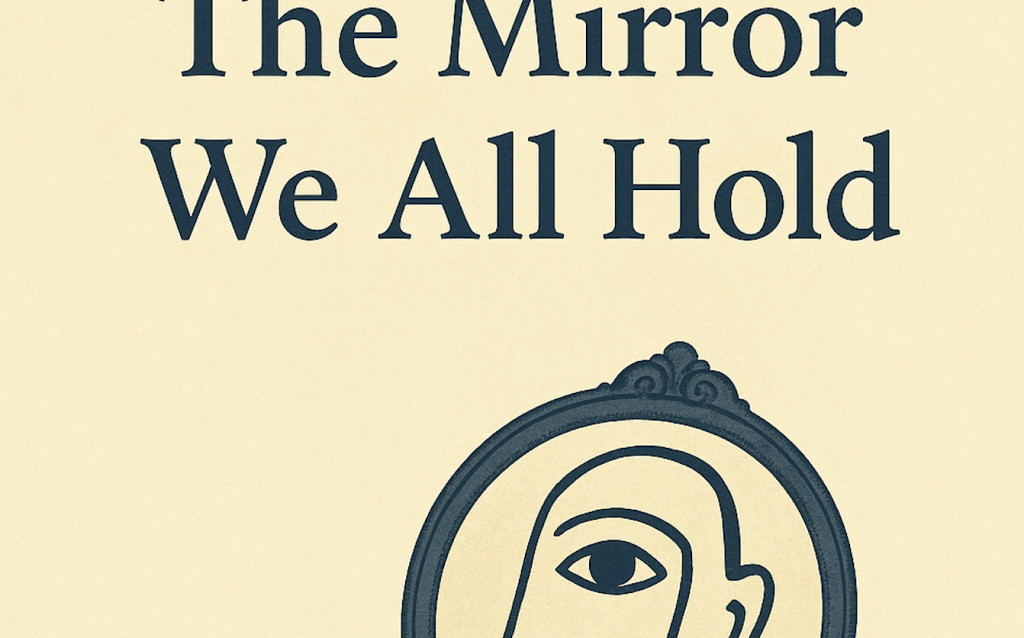
“For now we see only a reflection as in a mirror; then we shall see face to face. Now I know in part; then I shall know fully, even as I am fully known.”
— 1 Corinthians 13:12
In the Bible’s finest chapter on love, we find the core of what all human beings seek: to know the truth and to be loved unconditionally. Some are forced to abandon the search by war, famine, or disaster. Others numb it with money, power, routine, or religion. But painters, composers, writers, and prisoners ache until the search is done. Life may be a poor player strutting its hour upon the stage, yet it remains a miraculous gift. In my own search, this is what I have learned:
Our reality is socially constructed. It is not simply out there, an objective truth. It is shaped through interaction, language, and shared meaning. What we take as natural or real is the result of human processes. We create culture, institutions, and practices until they appear objective, unquestionable. Society is a human product, and humans are also a product of society.
So, God is not dead; she was never alive. Human beings are distinguished by language, and only with language could we invent the search for truth and love and confront our fear of death. We created narratives to explain, console, and control — each shaped by its ethnicity. When those narratives masquerade as religion, they breed arrogance and division, and evil flourishes in the shadows they cast.
In postmodern times, these grand stories have been dismantled, leaving behind fragments of wisdom, still priceless, still relevant. With their collapse comes the dissolution of absolute truth, the perfect mirror. We are left with fractured mirrors that blur and distort. We will never see face to face. We will never fully know.
Yet one certainty remains: we are constellations of atoms, stardust reassembled by chance and time, hurtling around our sun on a rock at 67,000 mph. DNA coils like ancient runes in every cell, issuing silent instructions: become, live, persist. From this choreography comes breath, thought, memory: a mother’s laughter, longing for distant places, a lover’s hand in the dark. We invent gods and heroes, build cathedrals and poems, grieve, and love. All this from fragile molecules wrapped in skin. Just chemistry. An echo of evolution. And yet: is it not a miracle that matter dreams at all?
As animals without God, we are capable of both the sublime and the grotesque, like a spider whose web can dazzle, yet devour. Both poles dwell in every heart. When misaligned in childhood, they consume more than they weave. Our destruction harms others as much as ourselves. Only when such misalignment is brought into the light, described and objectified, can disaster be averted. There is no cure, but it can be managed.
And yes, we need others. The fool thinks he can do it alone, with drugs or double lives. But we are social creatures, destined to create and to destroy together. We are the same story, written in different ink, linked like islands beneath the ocean. We need one another to hold up the mirrors in which we might glimpse truth — and love.
Love is the fiction we live and die for. Our need for sex and closeness becomes sonnet and story, until the invention feels more real than the words that birthed it. Yet in that fiction, light is found. And only in that light do the mirrors reflect enough to end our search.
The arts are our vehicle for this search. Education is archaic. It is preserved that way by an oligarchy masquerading as democracy to secure the success of its offspring. Were curricula ever to be revised, the arts must not be replaced by AI or science, but contextualised by them. Only then might humanity move toward security and enlightenment, instead of decline and crime.
I’d be very interested in your comments.